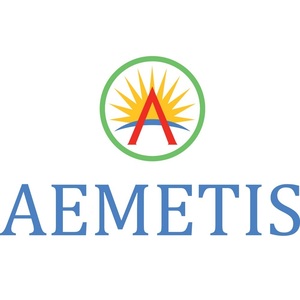Aemetis awarded $34M of biodiesel contracts by India oil refiners

April 17, 2023
BY Aemetis Inc.
Aemetis Inc. announced today that its Universal Biofuels subsidiary in India, owner and operator of a biodiesel plant located near the Port of Kakinada on India’s east coast, was selected by the three government-controlled oil marketing companies (OMC’s) to supply approximately 8.5 million gallons of biodiesel over the next three months. Revenues from the shipments are expected to be approximately $34 million of the $538 million of total tender offers issued by the OMC’s to fulfill biodiesel demand during the second quarter of 2023.
Approximately 70 percent of the 25 billion gallon diesel market in India is supplied by the OMC’s, with the remaining 30 percent supplied by large non-governmental oil refineries.
Advertisement
Advertisement
“We are pleased to see the Indian government’s commitment to the implementation of the 2022 National Biofuels Policy, and the OMC’s purchasing processes are resulting in significantly increased demand for biodiesel in India,” stated Sanjeev Gupta, managing director of the Universal Biofuels subsidiary of Aemetis. “The required product quality testing for the contracts has been completed and biodiesel deliveries have commenced for the contracted period of April, May and June.”
Aemetis built the 50 million gallon per year capacity biodiesel plant on the East Coast of India to convert agricultural products and byproducts into high quality biodiesel that can reduce air pollution while creating new agricultural and manufacturing jobs in India. The Aemetis Universal Biofuels plant delivers high quality biodiesel fuel and has built a reputation as a proven large-scale renewable fuels producer in India.
The total volume tendered by the India OMC’s was approximately 132 million gallons for the three-month delivery period. As one of India’s largest domestic biodiesel producers, Aemetis Universal Biofuels is well positioned to expand production to meet the large domestic demand being created by the OMC’s tender offers.
Advertisement
Advertisement
A 5 percent minimum blend of biodiesel by 2030 was adopted as a goal under the 2022 amendment to the India National Policy on Biofuels to expand the domestic production and consumption of biodiesel. The biofuels policy seeks to improve the environment through lower air pollution from diesel vehicles and expand economic growth by increasing the domestic production of biodiesel feedstocks. Biodiesel feedstocks include renewable oils that are byproducts from food production, which can lower the overall cost of food and improve the environment by creating new markets for these byproducts.
Related Stories
The U.S. Energy Information Administration maintained its forecast for 2025 and 2026 biodiesel, renewable diesel and sustainable aviation fuel (SAF) production in its latest Short-Term Energy Outlook, released July 8.
XCF Global Inc. on July 10 shared its strategic plan to invest close to $1 billion in developing a network of SAF production facilities, expanding its U.S. footprint, and advancing its international growth strategy.
U.S. fuel ethanol capacity fell slightly in April, while biodiesel and renewable diesel capacity held steady, according to data released by the U.S. EIA on June 30. Feedstock consumption was down when compared to the previous month.
XCF Global Inc. on July 8 provided a production update on its flagship New Rise Reno facility, underscoring that the plant has successfully produced SAF, renewable diesel, and renewable naphtha during its initial ramp-up.
The USDA’s Risk Management Agency is implementing multiple changes to the Camelina pilot insurance program for the 2026 and succeeding crop years. The changes will expand coverage options and provide greater flexibility for producers.
Upcoming Events










